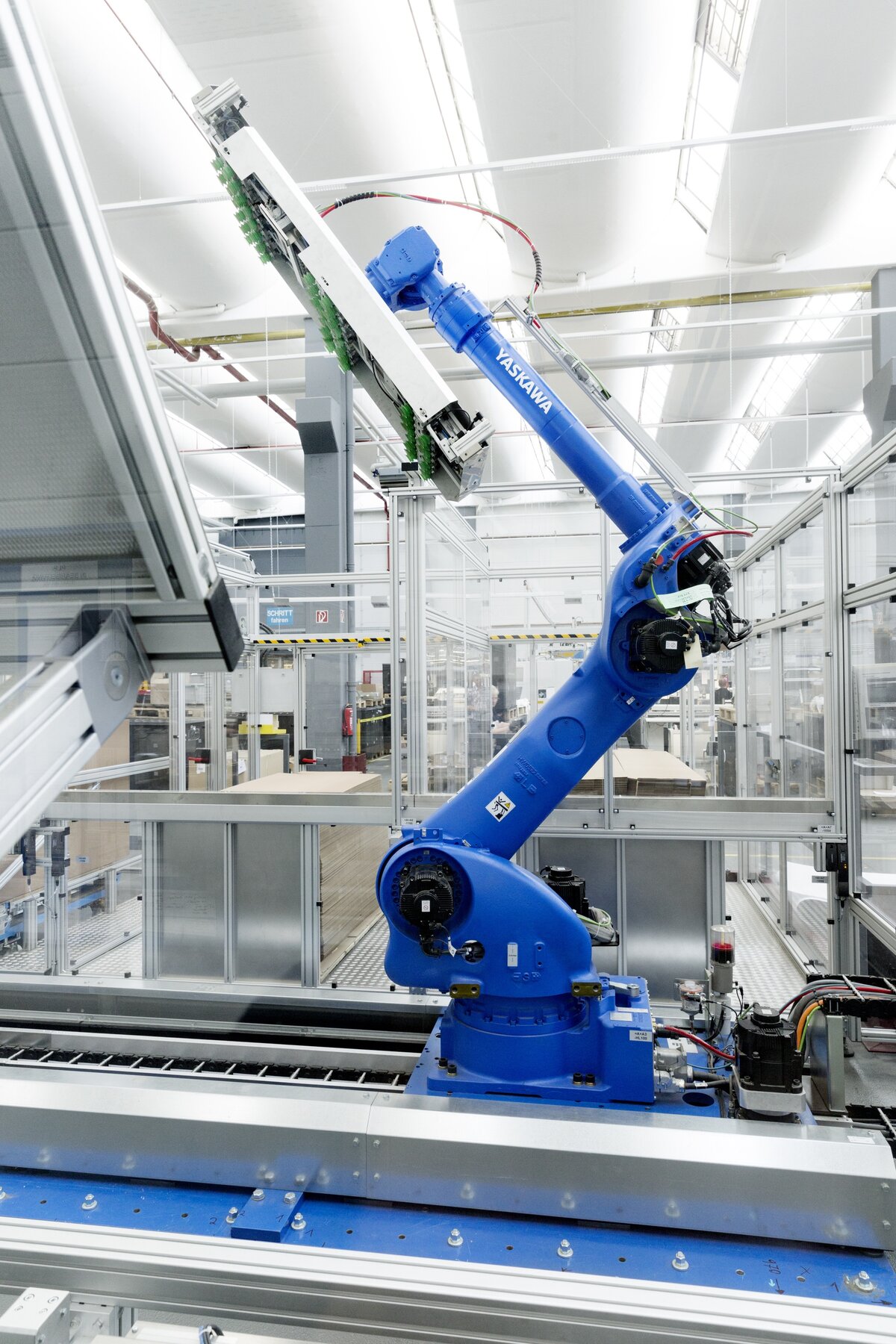Our industry-leading, high-speed industrial robots include high-payload, extended-reach, ultra-maneuverable seven-axis and unique 15-axis dual-arm robots.
Yaskawa robots with regenerative braking
Energy-efficient robots
Yaskawa offers a technical solution for the recovery of robot braking energy into the power grid – as a standard and without additional hardware. All larger Motoman robot series with a payload upwards of approx. 50 kg and the latest YRC1000 robot controls are able to convert kinetic energy from down and sideways movements directly into 400 V AC at 50 Hz and feed it back into the net. Depending on its movement pattern, the robot’s energy requirements are therewith significantly reduced.
Prerequisite for this energy recovery is the standard YRC1000 robot controller in conjunction with the larger robots with payloads upwards of approx. 50kg.
In their very diverse tasks – such as handling, palletizing, joining and processing – industrial robots make many down or sideways movements, during which the servomotors dissipate energy and potentially generate electricity. Up until now, in older or other robot models on the market, the resulting energy has been converted to waste heat by control technology through electrical resistance and lost to the environment.
In the Yaskawa solution, the electric energy is fed back into the operator network without additional hardware and reused. The extent of savings in each case depends essentially on the task and the individual robot’s movement patterns. Savings in the 8% to 25% range can be anticipated. This may well result in annual feed-ins of about 2,800 kWh, with savings of about 1,600 kg CO2 and € 1,200.
Only comparable solution on the market
With this hitherto unique technical solution, Yaskawa has applied its experience as manufacturer of drive technology – after all, all servo drives and control packages are in-house products, and accordingly optimal tailored to industrial robots.
Motoman robots open up further efficiency potential due to their slim and compact design with low moving masses and fast application of brakes during movement intervals, in order to switch off the active position control when not in use.
Intelligent operating concepts of the operator that, for example, also provide for the automatic shutdown of robots in predictable breaks, contribute additionally to energy saving.
Energy efficiency as strategic corporate goal
Like the promotion of environmental management through processes and green products, at Yaskawa energy efficient solutions such as this are an integral part of the worldwide corporate strategy. For example, with its products the company aims to cut 100 times the self-induced global CO2 emissions by 2025.
The Yaskawa Group orients its activities to the 17 UN sustainability goals and focuses on sustainable projects, e.g. digitization of the value-added chain, assumption of heavy and dirty tasks through automation and efficient food production in smart agriculture for a sustainable, profitable and liveable future.




















